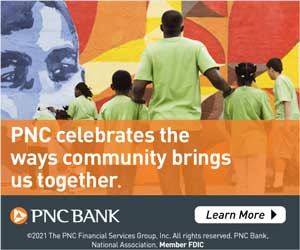Multiple roads available to nonprofit success
By IMBM staff
There is no one way to end up at a nonprofit organization, the three leaders below talk about their journey into the nonprofit world. One thing the all agreed on, if you don’t have a passion for the organization you’re serving, you won’t enjoy the work.
 Ashley Jordan, Executive Director at Evansville African-American Museum
Ashley Jordan, Executive Director at Evansville African-American Museum
Ashley Jordan’s path to the nonprofit sector was a circuitous one. Initially, Jordan majored in journalism and mass communications, but she realized something very important between her sophomore and junior years of college — she didn’t like it. She tried other majors and still no luck. After an advisor noticed Jordan performed well in history courses, the advisor suggested Jordan study history, specifically public history.
Jordan landed an internship at the Smithsonian National Museum of American History in Washington, D.C., through a political science internship program at Kent State University.
“It was the internship that changed my life,” Jordan said. “I finally found what it is I wanted to do.”
Jordan credits great mentors who helped her cultivate her interest in working with African-American history and offered educational and professional advise to improve her future employment opportunities.
Before landing her current role, Jordan was curator of the National Afro-American Museum and Cultural Center in Wilberforce, Ohio, and curator at the National Underground Railroad Freedom Center, Cincinnati, Ohio.
“What I can say about being in this nonprofit environment, I would say in the museum world, I was able to find mentors who were concerned about the next generation in a sense,” Jordan said.
“You learn a lot about partnerships and cultivating your donors.
Sometimes you get into situations where you’re building things from the ground up.
It’s probably one of the most tangible working experiences I’ve ever had. Challenges do come, but you have to back bounce quickly. You’re going to hear the word ‘no’ but it helps you to become more resilient.”
When approached to be executive director of the Evansville African-American Museum, Jordan had never heard of the city. Now, she’s trying to make sure people far and wide know about the museum, which is located in the only building left of Lincoln Gardens, the second federal housing project under President Franklin D. Roosevelt’s New Deal.
“It’s not enough that we think that people are going to come to us,” Jordan said. “I’m just looking to exhaust all mediums and get the word out about our museum. It’s a little unsung hero.”
 Robert Shegog, Director of Operations
Robert Shegog, Director of Operations
at PACE (Public Advocates in Community Re-Entry)
Since he was very young, Robert Shegog knew he wanted to help people.
“Growing up in Mississippi, I saw a lot of people who had no one to help them. I saw a lot of inequities and a lot of discrimination. I also saw a lot of hurt as a result of those things. For as long as I can remember, I knew I would dedicate my life to helping others.”
He did exactly that.
After serving in the Navy, Shegog immersed himself into public service, spending over 20 years in law enforcement, including serving on the special investigations unit.
After relocating to Indianapolis, he began working at PACE, an organization that helps ex-offenders lead progressive lives post-incarceration. The organization is able to help clients establish normalcy by offering financial coaching, mental health services and employment training among other programs and services.
“PACE gives me the opportunity to help an underrepresented and often stigmatized demographic of people. It is extremely important for me to not only ensure our clients have access to the services they need, but that they are also equipped with the proper tools to ensure they can be self-sufficient and not return to jail. Doing these things while also treating clients with dignity is fundamental to our team,” Shegog said.
PACE is one of the premier re-entry programs in the state. Shegog says that is largely because of the highly dedicated staff who works to execute the organization’s mission on a daily basis.
“PACE has been able to serve clients so effectively because of the collective efforts of our team. It truly takes active participation from our entire staff to serve the community in such an exemplary way. PACE is blessed to have such a dedicated team who takes pride in their work and helping the clients we serve.”
 Kelly K. Shrock, President,
Kelly K. Shrock, President,
The Community Foundation of Muncie and Delaware County
When Kelly Shrock joined Sigma Kappa sorority as a student at Ball State University, she had no idea it would lead to a career in the nonprofit sector. What Shrock did know, however, is she wanted her career to make a difference and help others.
“All because I got involved in a social sorority, I found my calling in leadership organizations,” she said.
After graduating, Sigma Kappa hired Shrock to work in leadership development. That was her first step into the nonprofit world and she hasn’t looked back. She eventually went to work at Ball State University as associate director of development.
Shrock almost missed the chance to work at the The Community Foundation of Muncie and Delaware County. The first time she saw the job opening, she read it and dismissed it. Shrock was quite happy at her alma mater, and she enjoyed working to support higher education. However, the job began to require more travel, conflicting with her desire to spend more time with her family. The job posting appeared again. This time she applied.
She joined the staff at The Community Foundation of Muncie and Delaware County as the development officer in 2012 and assumed the leadership position when longtime president Roni Johnson retired in 2013.
“I think for most folks in nonprofit work, we live our mission every day,” Shrock said. “Sometimes people are intimidated or nervous about the fundraising piece. Fundraising is about establishing relationships and telling a compelling story. I think sometimes fundraising can tend to be oft putting to folks because they don’t feel like they know how to do it. We all have to hone our fundraising skills because we have to add resources to help us in our mission.”
The Community Foundation of Muncie and Delaware County supports and encourages philanthropy, helps donors build charitable assets and helps direct assets to improve quality of life in Muncie and Delaware County. I










